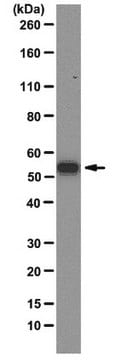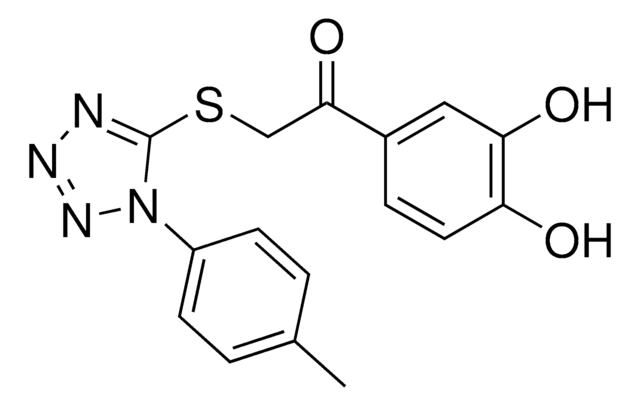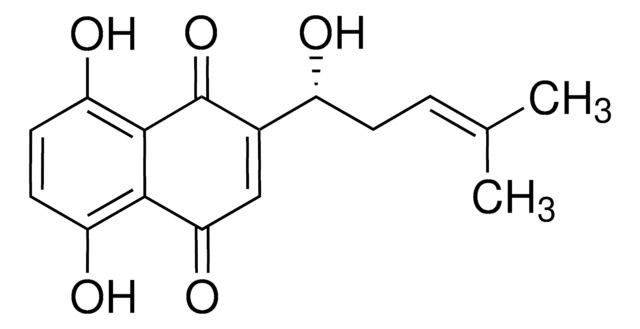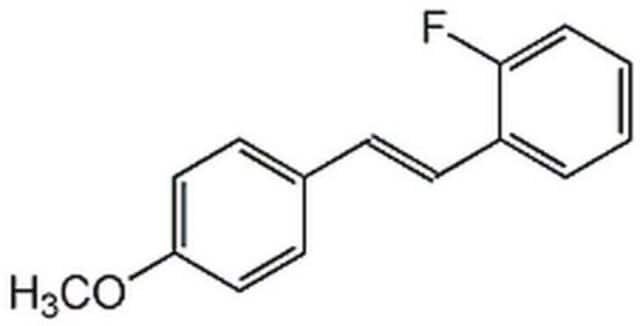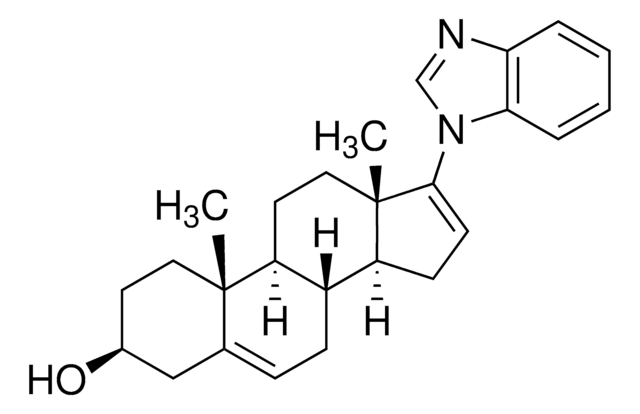SML0770
P5091
≥98% (HPLC)
Sinónimos:
1-[5-[(2,3-Dichlorophenyl)thio]-4-nitro-2-thienyl]-ethanone; 1-[5-(2,3-dichlorophenyl)sulfanyl-4-nitro-2-thienyl]ethanone
About This Item
Productos recomendados
Quality Level
assay
≥98% (HPLC)
form
powder
color
light yellow to dark yellow
solubility
DMSO: 10 mg/mL, clear
storage temp.
2-8°C
InChI
1S/C12H7Cl2NO3S2/c1-6(16)10-5-8(15(17)18)12(20-10)19-9-4-2-3-7(13)11(9)14/h2-5H,1H3
InChI key
LKZLGMAAKNEGCH-UHFFFAOYSA-N
Application
- as a ubiquitin specific peptidase 47 (USP47) inhibitor in 3-(4,5-dimethylthiazol-2-yl)-2,5-diphenyltetrazolium bromide (MTT) assay to evaluate the cellular viability of MCF-10A cells
- as a USP7 inhibitor to study the regulatory role for USP7 on inflammasome activation
- as USP7 inhibitor in drug susceptibility assays to study its effect on bone marrow−resident tumor cells (BMRTCs)/ circulating tumor cells (CTCs)
Biochem/physiol Actions
signalword
Danger
hcodes
Hazard Classifications
Acute Tox. 3 Oral - Aquatic Chronic 4
Storage Class
6.1C - Combustible acute toxic Cat.3 / toxic compounds or compounds which causing chronic effects
wgk_germany
WGK 3
flash_point_f
Not applicable
flash_point_c
Not applicable
Certificados de análisis (COA)
Busque Certificados de análisis (COA) introduciendo el número de lote del producto. Los números de lote se encuentran en la etiqueta del producto después de las palabras «Lot» o «Batch»
¿Ya tiene este producto?
Encuentre la documentación para los productos que ha comprado recientemente en la Biblioteca de documentos.
Nuestro equipo de científicos tiene experiencia en todas las áreas de investigación: Ciencias de la vida, Ciencia de los materiales, Síntesis química, Cromatografía, Analítica y muchas otras.
Póngase en contacto con el Servicio técnico
